Related Research Articles

Charles-Camille Saint-Saëns was a French composer, organist, conductor and pianist of the Romantic era. His best-known works include Introduction and Rondo Capriccioso (1863), the Second Piano Concerto (1868), the First Cello Concerto (1872), Danse macabre (1874), the opera Samson and Delilah (1877), the Third Violin Concerto (1880), the Third ("Organ") Symphony (1886) and The Carnival of the Animals (1886).

Charles-Marie-Jean-Albert Widor was a French organist, composer and teacher of the late Romantic era. As a composer he is known for his ten organ symphonies, especially the toccata of his fifth organ symphony, which is frequently played as recessional music at weddings and other celebrations.
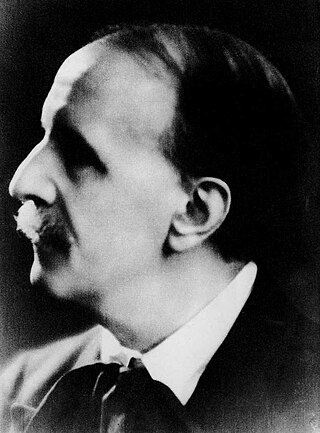
Louis Victor Jules Vierne was a French organist and composer. As the organist of Notre-Dame de Paris from 1900 until his death, he focused on organ music, including six organ symphonies and a Messe solennelle for choir and two organs. He toured Europe and the United States as a concert organist. His students included Nadia Boulanger and Maurice Duruflé.

Marcel Jean-Jules Dupré was a French organist, composer, and pedagogue.

Toccata is a virtuoso piece of music typically for a keyboard or plucked string instrument featuring fast-moving, lightly fingered or otherwise virtuosic passages or sections, with or without imitative or fugal interludes, generally emphasizing the dexterity of the performer's fingers. Less frequently, the name is applied to works for multiple instruments.
Karl Richter was a German conductor, choirmaster, organist, and harpsichordist.
The organ repertoire is considered to be the largest and oldest repertory of all musical instruments. Because of the organ's prominence in worship in Western Europe from the Middle Ages on, a significant portion of organ repertoire is sacred in nature. The organ's suitability for improvisation by a single performer is well adapted to this liturgical role and has allowed many blind organists to achieve fame; it also accounts for the relatively late emergence of written compositions for the instrument in the Renaissance. Although instruments are still disallowed in most Eastern churches, organs have found their way into a few synagogues as well as secular venues where organ recitals take place.
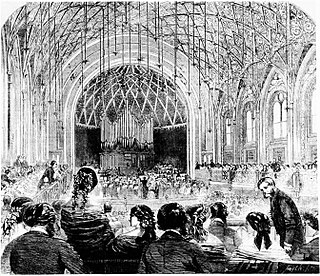
The Symphony No. 3 in C minor, Op. 78, was completed by Camille Saint-Saëns in 1886 at the peak of his artistic career. It is popularly known as the Organ Symphony, since, unusually for a late-Romantic symphony, two of the four movements use the pipe organ. The composer inscribed it as: Symphonie No. 3 "avec orgue".
Pierre Eugène Charles Cochereau was a French organist, improviser, composer, and pedagogue.
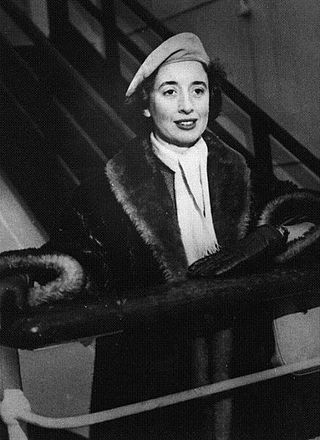
Jeanne Marie-Madeleine Demessieux was a French organist, pianist, composer, and teacher. She was the chief organist at Saint-Esprit for 29 years and at La Madeleine in Paris starting in 1962. She performed internationally as a concert organist and was the first female organist to sign a record contract. She went on to record many organ works, including her own compositions.

Jean Victor Arthur Guillou was a French composer, organist, pianist, and pedagogue. Principle Organist at Saint Eustache in Paris, from 1963 to 2015, he was widely known as a composer of instrumental and vocal music focused on the organ, as an improviser, and as an adviser to organ builders. For several decades he held regular master classes in Zurich and in Paris.
Joan Lippincott is an American concert organist and former head of the organ department at Westminster Choir College in Princeton, New Jersey.
Todd Wilson is an American organist and teacher based in Ohio.
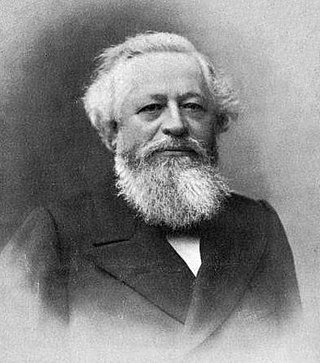
Félix-Alexandre Guilmant was a French organist and composer. He was the organist of La Trinité from 1871 until 1901. A noted pedagogue, performer, and improviser, Guilmant helped found the Schola Cantorum de Paris. He was appointed as Professor of Organ in the Conservatoire de Paris in 1896.
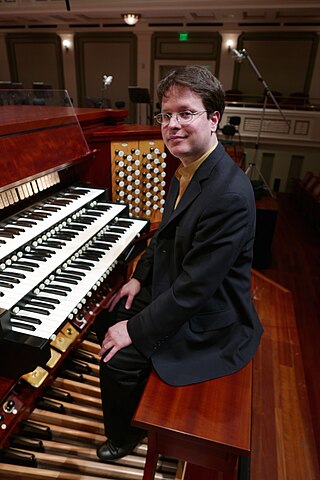
Paul Jacobs is an American organist. He is the first organist to receive a Grammy Award. Jacobs is currently the chair of the Juilliard School's organ department and is considered "America’s premier organ performer…."
Pascal Vigneron is a French classical musician, both trumpeter, organist, and conductor.

The Salle Gaveau, named after the French piano maker Gaveau, is a classical concert hall in Paris, located at 45-47 rue La Boétie, in the 8th arrondissement of Paris. It is particularly intended for chamber music.

Gereon Krahforst is a German composer, concert organist, pianist, harpsichordist, and church musician.
The Organ of the Trocadero Palace was built by Aristide Cavaillé-Coll for the 1878 Universal Exhibition at the Palais du Trocadéro in Paris, France. The organ was transferred to the Palais de Chaillot in 1937, before moving to the Auditorium Maurice-Ravel in Lyon in 1977.
References
- 1 2 Morita, Patsy. "Michael Murray Biography". Allmusic . Retrieved 22 November 2011.
- ↑ Holland, Bernard (5 May 1990). "Review/Music; Murray in Franck Marathon". The New York Times . Retrieved 22 November 2011.
- ↑ "Authentic pipes just right for Dupre's organ symphony". Lawrence Journal-World . Associated Press. 26 April 1987. Retrieved 22 November 2011.
- ↑ von Rhein, John (7 November 1987). "Slatkin And Cso Evoke Grant Park Memories". The Chicago Tribune . Retrieved 22 November 2011.
- ↑ Keller, James M. "COPLAND: Quiet City | Symphony for Organ and Orchestra". Program Notes. San Francisco Symphony. Archived from the original on 6 April 2012. Retrieved 22 November 2011.
The San Francisco Symphony first performed [Copland's organ symphony] in January 1986...the soloist was Michael Murray.
- ↑ Johnson, Lawrence (8 December 1996). "Bach: Toccata and Fugue in F Major". The Chicago Tribune . Retrieved 22 November 2011.
- ↑ "Ohio State honors six at autumn 2000 commencement". December 5, 2000. Retrieved 27 November 2010.
- ↑ "Murray | School of Music". Archived from the original on 2014-06-04. Retrieved 2014-06-04.